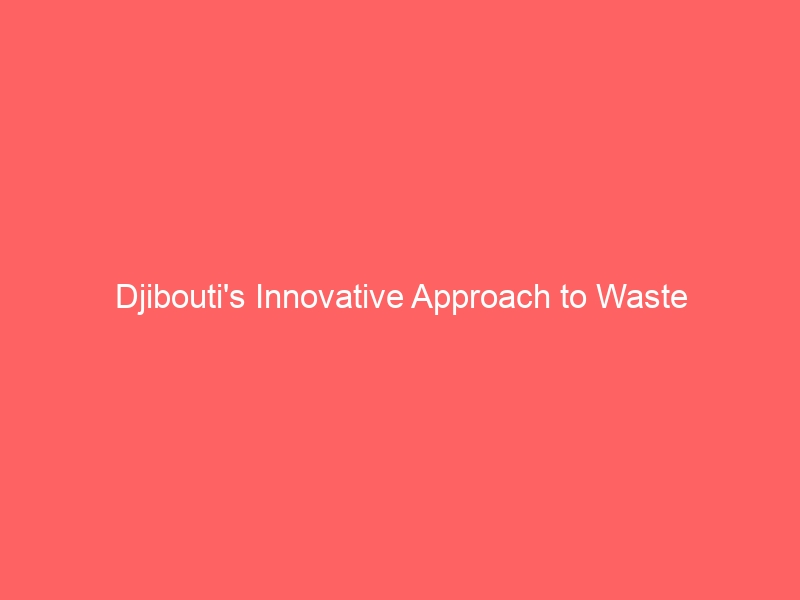Djibouti’s Innovative Approach to Waste Management with New Incinerator
Djibouti, a small country located in the Horn of Africa, has recently implemented a new and innovative approach to waste management with the introduction of a new waste incinerator. The new incinerator, which is the first of its kind in the country, is expected to revolutionize the way waste is managed in Djibouti and significantly reduce the environmental impact of waste disposal.
The development of the new incinerator comes at a time when Djibouti is facing a growing waste management challenge. With a population of over 1 million and limited land space for waste disposal, the country has been struggling to manage its waste effectively. The traditional landfill approach has become unsustainable, leading to environmental pollution, health hazards, and an overall negative impact on the quality of life in Djibouti.
In response to these challenges, the government of Djibouti has taken a proactive approach to waste management by investing in innovative solutions that can address the growing waste problem in a sustainable manner. The new waste incinerator is a key part of the government’s strategy to improve waste management and reduce the environmental impact of waste disposal.
The new incinerator is designed to burn waste at high temperatures, effectively reducing the volume of waste and minimizing its impact on the environment. It is equipped with modern pollution control technologies to ensure that emissions from the incineration process are within acceptable limits, and it is expected to significantly reduce the amount of waste that needs to be landfilled.
In addition to its environmental benefits, the new incinerator is also expected to provide economic opportunities for the local community. The incinerator will create jobs in waste management and incinerator operation, offering employment opportunities for local residents and contributing to the overall economic development of the country.
The introduction of the new incinerator represents a significant milestone in Djibouti’s efforts to improve waste management and reduce the environmental impact of waste disposal. It demonstrates the country’s commitment to adopting innovative solutions to address its waste management challenges and its determination to create a cleaner and healthier environment for its citizens.
Frequently Asked Questions about Djibouti’s New Incinerator
1. What is the purpose of the new waste incinerator in Djibouti?
The new waste incinerator in Djibouti is designed to improve waste management in the country and reduce the environmental impact of waste disposal. It is expected to address the growing waste problem in a sustainable manner by burning waste at high temperatures and minimizing its impact on the environment.
2. How will the new incinerator benefit the environment?
The new incinerator is equipped with modern pollution control technologies to ensure that emissions from the incineration process are within acceptable limits. It is expected to significantly reduce the amount of waste that needs to be landfilled, therefore minimizing the environmental impact of waste disposal.
3. What economic opportunities will the new incinerator create?
The new incinerator is expected to create jobs in waste management and incinerator operation, offering employment opportunities for local residents and contributing to the overall economic development of the country.
4. How will the new incinerator contribute to the overall waste management strategy in Djibouti?
The new incinerator is a key part of the government’s strategy to improve waste management in Djibouti. It is expected to play a significant role in reducing the environmental impact of waste disposal and creating a cleaner and healthier environment for the citizens of Djibouti.
5. What are the expected environmental and health benefits of the new incinerator?
The new incinerator is expected to significantly reduce the environmental impact of waste disposal by minimizing the amount of waste that needs to be landfilled. This will help prevent environmental pollution and health hazards associated with traditional landfill approaches.
In conclusion, Djibouti’s innovative approach to waste management with the introduction of a new waste incinerator represents a significant step forward in addressing the country’s waste management challenges. The new incinerator is expected to revolutionize the way waste is managed in Djibouti, providing environmental and economic benefits for the local community and contributing to the overall sustainability and development of the country.








